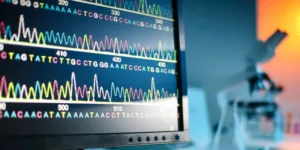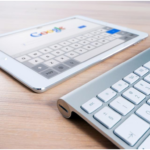Despite the fact that technology is developing at an accelerated pace, it can never replace people, since the final decision is often made by a single person or group of people. But eventually it will happen that a person can use technological solutions, and they will increase efficiency and simplify the process of work.
Fundamental factors that determine the advantages of implementing this technology are convenience, efficiency and automation. This innovative breakthrough affected virtually every industry. Let’s talk about whether it makes sense to introduce it into medicine.
The technology, which involves connecting and interconnecting devices among themselves on the network, regardless of whether the switch is on or off, will affect the medicine in any case.
The first attempts to use it can be called the following:
• Ability to remotely monitor the treatment process
• Introduction of wearable intelligent sensors
• Ability to track biometric sensors
• Using smart beds
• Drug dispensers and much more.
Just imagine how much the level of medicine will increase if you invest more opportunities in it.
Suppose a patient and a doctor receive an identical notice of a visit of the first to the second. This is possible, because both their schedules are connected to the Internet. On the way to the hospital, the patient faces difficult traffic on the road. Then the car sends the doctor an alert that the patient will be delayed a little. This technology is able to optimize the patient’s cooperation with the doctor.

Why is medicine needed?
1. To make the data into action
The ideal option for the development of medicine is an increase in the amount of health. If health can be measured, then it can be improved. In addition, data have a significant impact on performance.
2. To improve the health of patients
The patient carries a device with a connection to the network. The device is able to inform the doctor when the patient’s heart stops beating or starts to beat more slowly. Personal information about these events is updated in the cloud, so IOT guarantees the safety of every important, the smallest detail that can affect a patient’s health.
3. Prevention of diseases
To date, close attention has been paid to the prevention of health. This is due to the fact that the expenditure allocated to the health care sector will become unmanageable after years. Thanks to online access to the patient’s health data, the reliability of which will be high, the medical sphere will develop rapidly with the advent of new reforms. This will help to lead a better life and prevent diseases.
4. Contented patients
The number of patients, satisfied with the work of doctors, will increase due to the optimization of the work of surgeons. For example, notification of the family about the end of the operation and discharge from the hospital of their relative. This will help eliminate the need for constant interaction with the doctor, since the device connected to Iota provide useful information.
5. Advance administration
Patient care groups will be able to receive data on heart rate, sleep, sweating, and temperature. This information, which will be transmitted using a sensor, will send a warning to patients and doctors online. In addition to optimizing treatment, this will provide an opportunity to monitor the health of the patient who is at home.
6. Promoting medical reform in the masses
Providers will be able to combine devices to have an idea of
the number of media. Patient care groups will be able to monitor the patient’s chronic illnesses at home. This will allow us to demonstrate the quality presence of the physician in the life of the patient.

Problems on the way of introduction
There are also obstacles to the abovementioned implementations. The main ones are storage, management and data security.
Further – lack of integration of EHR. Despite the fact that the data is freely distributed, many providers do not have enough resources to gain access to it.
The population also has problems due to poor Internet connection, lack of access to connection, which is more common among the elderly, people with insufficient education, people with small earnings, villagers, children.
Everything is ahead
IOT is being introduced into many other spheres, for example, automotive, industrial, retail and education. Introduction to the healthcare sphere is the optimization of the work process, the improvement of patient care and control over their state of health. Thus, it will be possible to reduce the number of hospitalizations, complications of ailments, reduce the costs of both parties to improve the health of the population.








